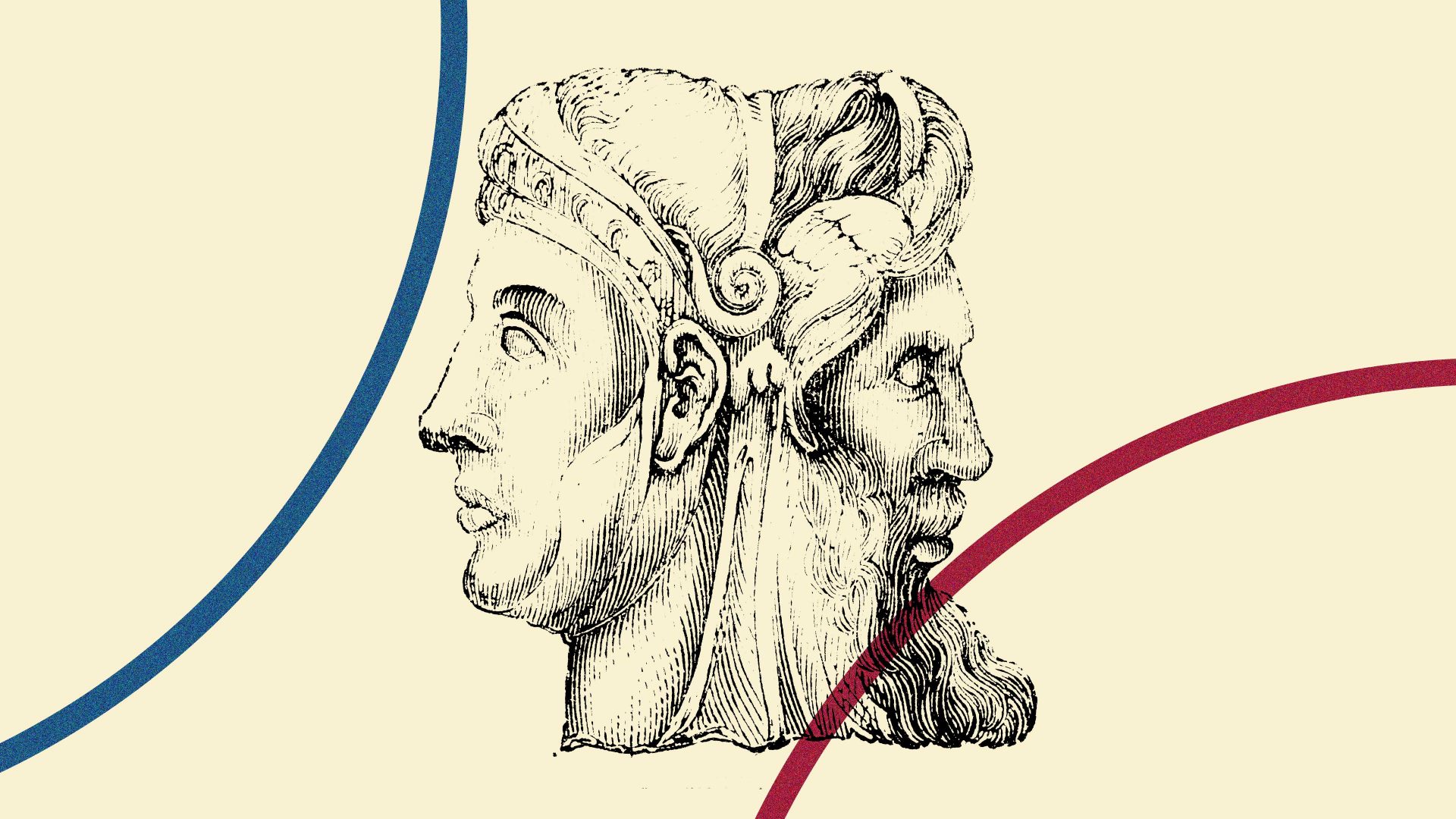January is named after Janus, the Roman god, who was two-faced in a good way. One face looked backwards, the other forwards. He was the god of beginnings and doorways, but also of endings.
Less well-known is that the temple dedicated to him in Rome had gates that were kept open at times of war and closed in times of peace. The exact reason for this is unclear.
Possibly opening the gates was a way of showing that Janus was out helping Rome win battles. Or it could have been that the closed gates kept war at bay, preventing it from escaping to bring conflict to the empire – that’s what Virgil thought.
But the symbolic significance of closing the gates was important and celebrated.
As we stagger into 2024 it looks unlikely that the gates of our own temple of Janus will be closed soon, perhaps not for many years. It is hard to see what could happen to change that.
Janus’s ability to look in two directions at the same time, to see accurately both the past and the future, would come in handy. But that sort of understanding of what’s going on seems to be something that only gods can achieve, even though some pundits pretend to have it.
Philosophy, with its tradition of scepticism and questioning of apparent certainties, provides a good antidote to confident claims to knowledge about complex situations, and about what is going to happen next. We don’t even have this kind of knowledge at an individual level in relation to our own lives.
Our memories are unreliable and we tend to confabulate, putting our actions and choices in the best light, or sometimes we just make up a good story and convince ourselves that it is true. And as to the trajectory that each of our lives will follow this year and beyond, who really has much of a clue?
We can make plans, have hopes and expectations, but there are so many unknown unknowns waiting to thwart or enhance them. What Thomas Hardy called “the persistence of the unforeseen’” is the dominant force.
In his journals, Søren Kierkegaard wrote that philosophy tells us that life can only be understood backwards, but what is often forgotten is that it must be lived forwards.
This usually gets shortened to the inspirational quotation “Life must be lived forwards but can only be understood backwards”. Almost certainly, someone somewhere is selling mugs, T-shirts and fridge magnets with that line on them.
Taken in isolation, though, the summary quotation suggests that Kierkegaard believed that life could indeed be understood, as if we could lean back in an armchair at the end of the day and say: “Ah yes, that’s what that was all about. I see now.”
On that interpretation, we may not have Janus’s two faces, but we at least have one that looks backwards and gets it right.
But, as with most topics Kierkegaard turned his quirky brilliant mind to, it wasn’t quite as simple as that. In his journals, he went on to reflect on the idea that life might be understood backwards and concluded that because we don’t stop living (until dead) there is never actually a point from which life can fully be understood subjectively. The fixed point we seek keeps shifting, the arrow of time keeps flying on. So life isn’t ever fully understood backwards after all.
That’s a more profound observation than the optimistic idea that everything falls into place in retrospect. It might also have been an indirect attack on Hegel’s thought that the owl of Minerva flies only at dusk, the German philosopher’s poetic way of suggesting that human history makes sense looking back. Kierkegaard hated Hegel.
This discussion of the past and future isn’t all leading up to a guru-like exhortation to live in the now, to forget about the past, and not worry about the future. A balanced life requires more than just focusing on the present moment, though that’s not to devalue some time devoted to appreciating what is in front of us.
Without plans and daydreams we lurch from one thing to another; without a sense of the past, we understand little about the present and our place in it.
But we should abandon any hope of achieving full understanding of anything important. Leave that to the gods.
For humans, everything is revisable in the light of new evidence and new perspectives. Understanding is never complete: it’s not a state we achieve but an ongoing process.



